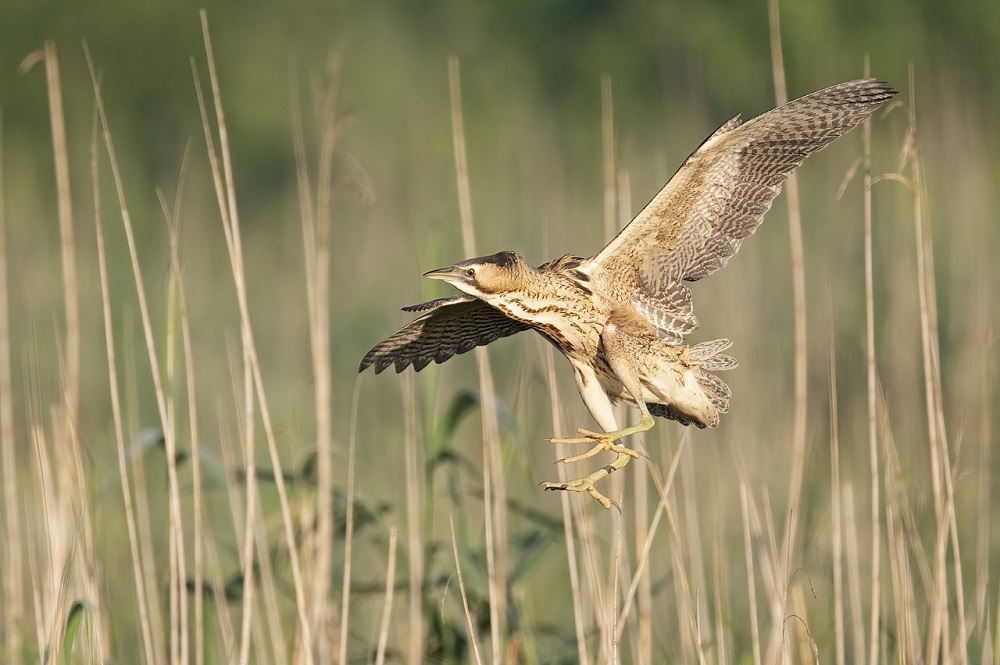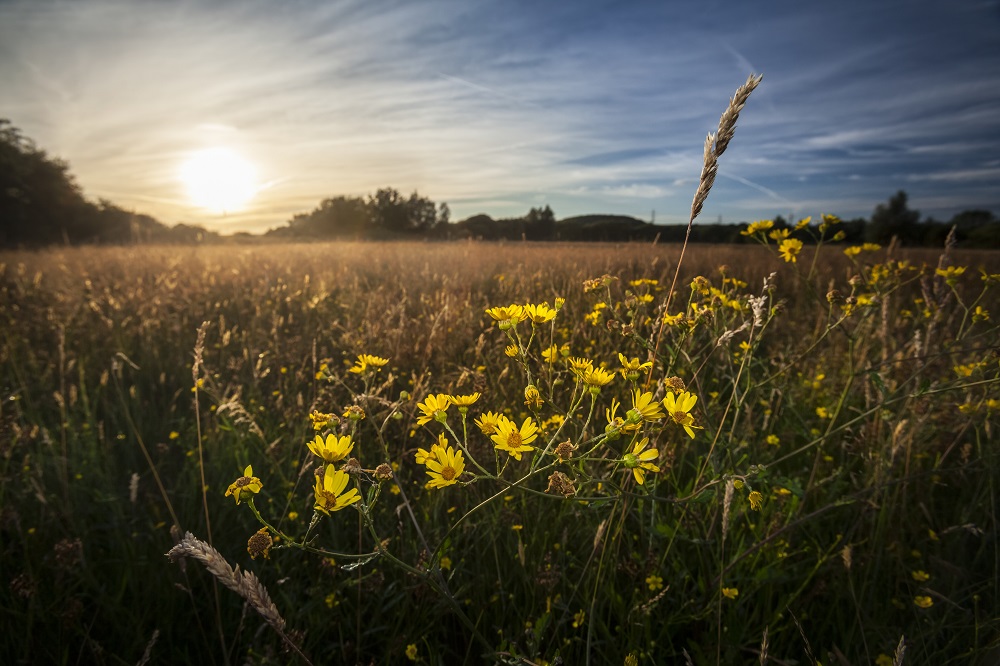Conservation success: Rare birds make remarkable comeback

In the face of the current nature and biodiversity emergencies, and the risk of extinction faced by some species across Wales, stories of conservation success can offer us hope for the future.
One such uplifting example involves the remarkable return of two of the UK’s rarest and most elusive marshland birds – bitterns and marsh harriers – to the Gwent Levels near Newport.
After previously being driven to the point of extinction, bitterns have successfully bred for the fifth successive year in a row at Newport Wetlands, thanks to conservation efforts by officers and volunteers from Natural Resources Wales (NRW).
Before 2020, bitterns had previously not bred on the Gwent Levels for at least 200 years, yet officers have recently recorded four separate nests at the reserve.
There are actually no records of bitterns ever having bred in Gwent, but it seems likely that they did breed there hundreds of years ago.
Habitat improvements
By taking action for nature, officers and volunteers have made a number of improvements to the wetlands over the years which have helped to create the optimum habitat for bitterns to thrive.
These improvements include the careful management of the reedbeds and introducing important food sources, such as small fish like rudd and helping elvers to get into the reedbeds from the Severn Estuary.
The reedbeds at the wetlands have also provided a valuable habitat for marsh harriers and bearded tits who have also bred at the reserve this year.

Marsh harriers are an Amber List species and are a Schedule 1 listed bird under the Wildlife and Countryside Act.
Despite initial concerns that predation attempts may have caused any chicks to flee the nest, the male marsh harrier was spotted by NRW officers taking food to two locations, indicating at least 2 chicks, approximately 30m and 60m from the original nest site. Eventually one chick fledged and is doing well.
Kevin Boina M’Koubou Dupé, Land Management Officer for Natural Resources Wales said: It’s truly amazing to see these remarkable bird species thriving at Newport Wetlands, and very satisfying for those of us who have been involved in habitat conservation at the site for a long time.
“Seeing them thrive for the fifth year in a row is a real testament to the conservation effort made by the team, including our many volunteers.
“Wetlands are an important habitat in need of our help. As well as allowing species like the bittern to come back from the brink, they can also help us in the battle against climate change by storing harmful carbon and holding back flood water.
The marsh harriers originally arrived at Newport Wetlands in 2016 and the original pair raised 12 chicks between 2017 and 2022.
A second pair began breeding at the reserve in 2023 and successfully fledged 3 chicks.

Chris Harris, Programme Manager for the Living Levels Landscape Partnership, said: The return of these iconic wetland birds to Newport Wetlands and the Gwent Levels is wonderful news.
“It’s an inspiring example of what can be achieved for wildlife conservation and a testament to the hard work of NRW staff and volunteers.
Kirsty Lindsay RSPB Visitor Experience Manager said: It is wonderful to see Bitterns and Marsh Harrier doing so well at Newport Wetlands. NRW are doing an amazing job in managing the wetlands habitat so the species can continue to thrive.
“It is truly amazing to see visitors so thrilled to have heard and seen plenty of Bittern activity, and this year has been better than ever with so many people getting the chance to learn about them and see them
The wetlands are managed by NRW in partnership with RSPB Cymru and Newport City Council.
To plan your visit to the Newport Wetlands, visit : Natural Resources Wales / Newport Wetlands National Nature Reserve
Support our Nation today
For the price of a cup of coffee a month you can help us create an independent, not-for-profit, national news service for the people of Wales, by the people of Wales.






At last some good news Nature birds making a come back
Great news – no thanks to Welsh Labour. Aren’t these the same Gwent Levels that Vaughan G’s criminal donors poured poisonous sludge into ?